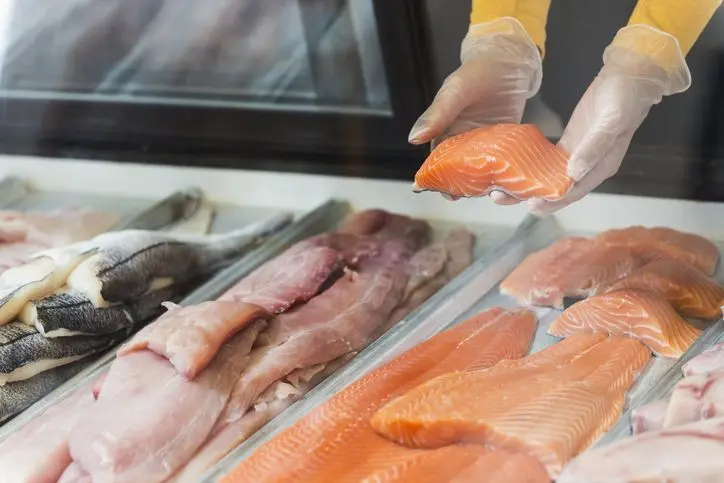Gout is a form of arthritis that is characterized by sudden and severe attacks of pain, redness, and swelling in the joints. It is caused by the buildup of uric acid in the body, which can form crystals in the joints and lead to inflammation.
For individuals with gout, it is important to follow a diet that is low in purines, as purines are converted into uric acid in the body. Foods that are high in purines, such as organ meats, shellfish, and certain types of fish, can trigger gout attacks.
What Fish is Not Bad for Gout?
While some types of fish are high in purines and should be avoided by individuals with gout, there are also fish options that are considered to be safe to consume. These fish have lower purine content and are less likely to cause gout flare-ups.
Some fish that are not bad for gout include:
- Anchovies (dried) - 1,109 mg of purines per 100 g
- Jack mackerel (half-dried) - 246 mg of purines per 100 g
- Bonito - 211 mg of purines per 100 g
- Sardines (half-dried) - 306 mg of purines per 100 g
Please note that the purine content can vary between fish species and cooking methods. It is always a good idea to consult with a healthcare professional or nutritionist for personalized dietary recommendations.
Cooking Tips
While avoiding certain types of fish may be ideal for gout management, it may not always be practical. In such cases, it is important to know that cooking methods can affect the purine content of fish. Boiling, poaching, or steaming fish in water can help reduce the overall amount of purines in the dish.
However, it is worth noting that certain cooking methods, such as eating raw fish (sashimi and sushi) or roasted fish, have been found to have a positive relationship with the risk of hyperuricemia (high uric acid levels).
Steaming fish is a healthy cooking method as it does not require the use of oil or fats. It helps retain the valuable nutrients inside the food, instead of in the cooking liquid.
Omega-3 Fatty Acids and Gout
Omega-3 fatty acids have been found to have various health benefits, including reducing the risk of heart disease and improving heart health. Studies have also shown a relationship between consuming omega-3 fatty acids and a decrease in gout flare-ups.
Fish that are high in omega-3 fatty acids include anchovies, herring, mackerel, black cod, salmon, sardines, bluefin tuna, striped bass, and whitefish. Consuming these fish may be beneficial for individuals with gout who are also concerned about their heart health.
However, it is important to note that the study on omega-3 fatty acids and gout was small, and individual responses to gout triggers can vary. It is always recommended to consult with a healthcare professional for personalized dietary advice.
What Meats Can You Eat If You Have Gout?
Gout management involves not only avoiding certain types of fish but also paying attention to other meats that may trigger gout attacks. Some meats that are considered to be safe for individuals with gout include:
- Lean cuts of beef
- Chicken breast
- Turkey breast
- Pork loin
It is important to note that moderation is key when consuming meats, as excessive intake can still contribute to the overall purine load in the body. It is recommended to consult with a healthcare professional or nutritionist for personalized dietary recommendations.
Summary
If you have gout, it is important to be mindful of the types of fish and meats you consume. Some fish, such as anchovies, mackerel, and sardines, have higher purine content and should be eaten in moderation. Other fish, like salmon, are lower in purines and can be enjoyed as part of a gout-friendly diet.
Cooking methods, such as boiling, poaching, or steaming fish in water, can help reduce the purine content. Additionally, consuming fish high in omega-3 fatty acids may have potential benefits for individuals with gout.
It is always recommended to consult with a healthcare professional or nutritionist for personalized dietary advice and to pay attention to which foods aggravate your gout condition.
A Word from Verywell
The Arthritis Foundation advises individuals with gout to limit purine intake and be aware of foods that may trigger gout attacks. Working with a nutritionist can provide guidance on suitable food choices and help create a diet plan that suits individual tastes and needs.
If you want to know other articles similar to Best fish for gout: low-purine options and cooking tips you can visit the Dietary category.


Related Articles